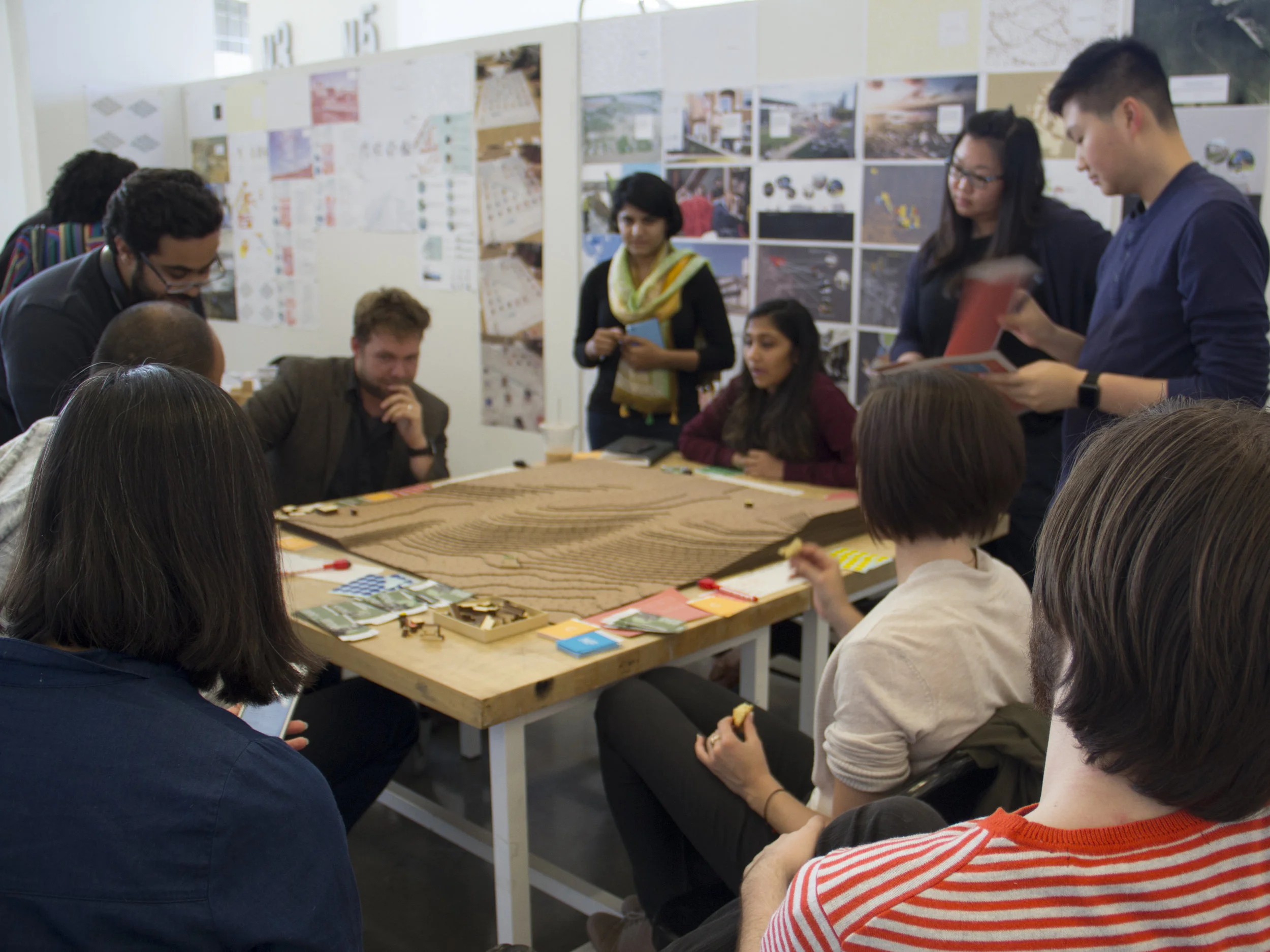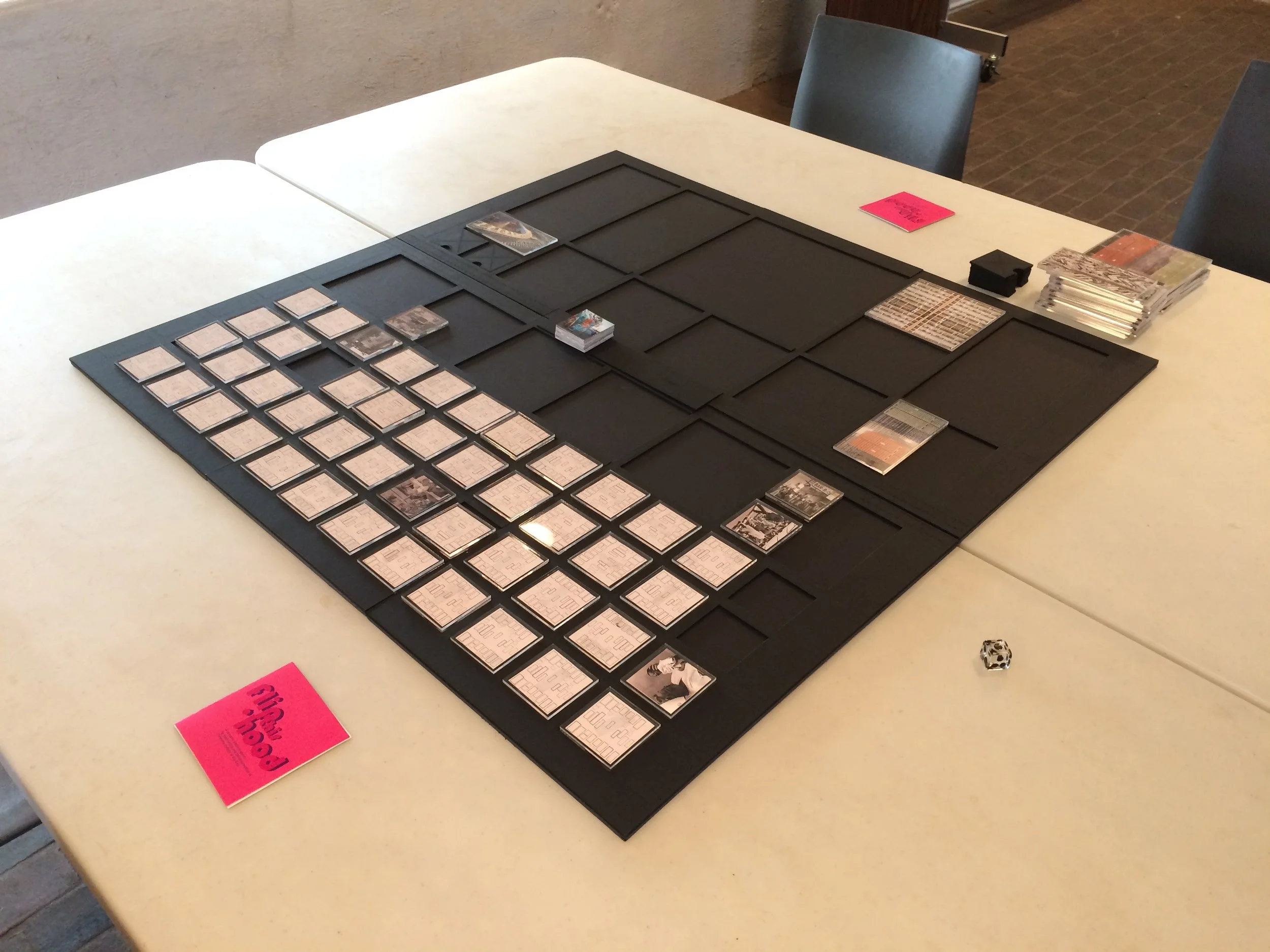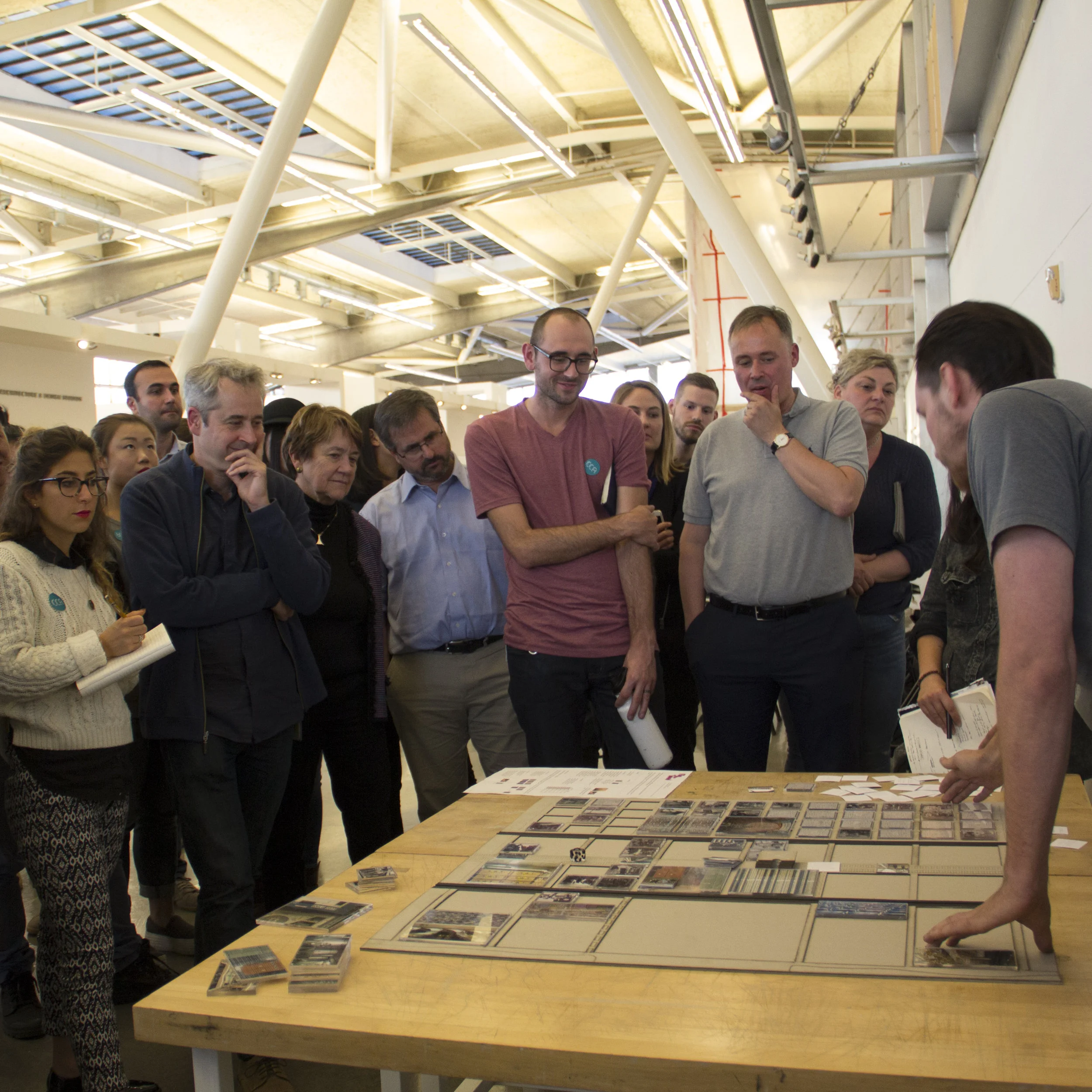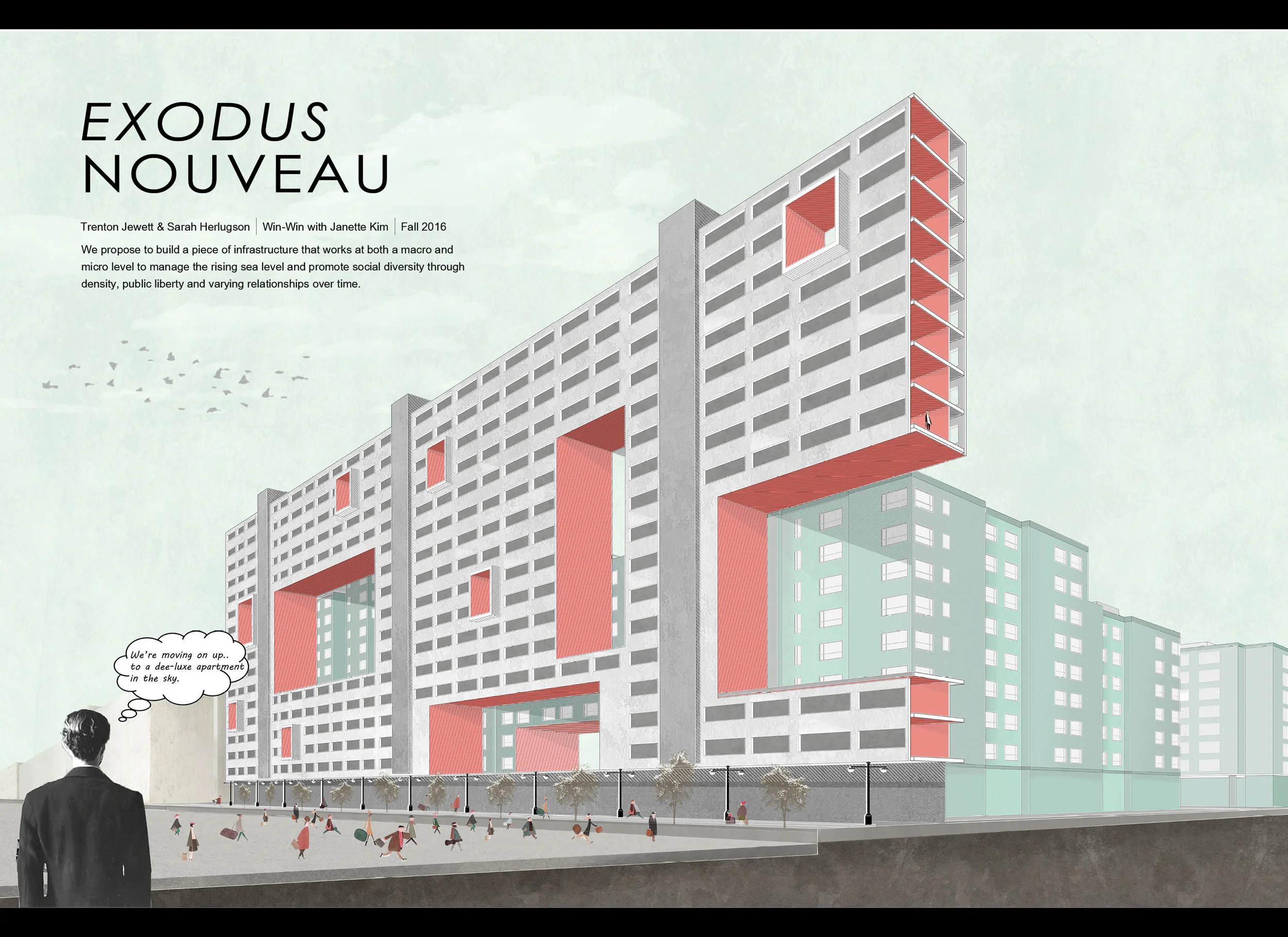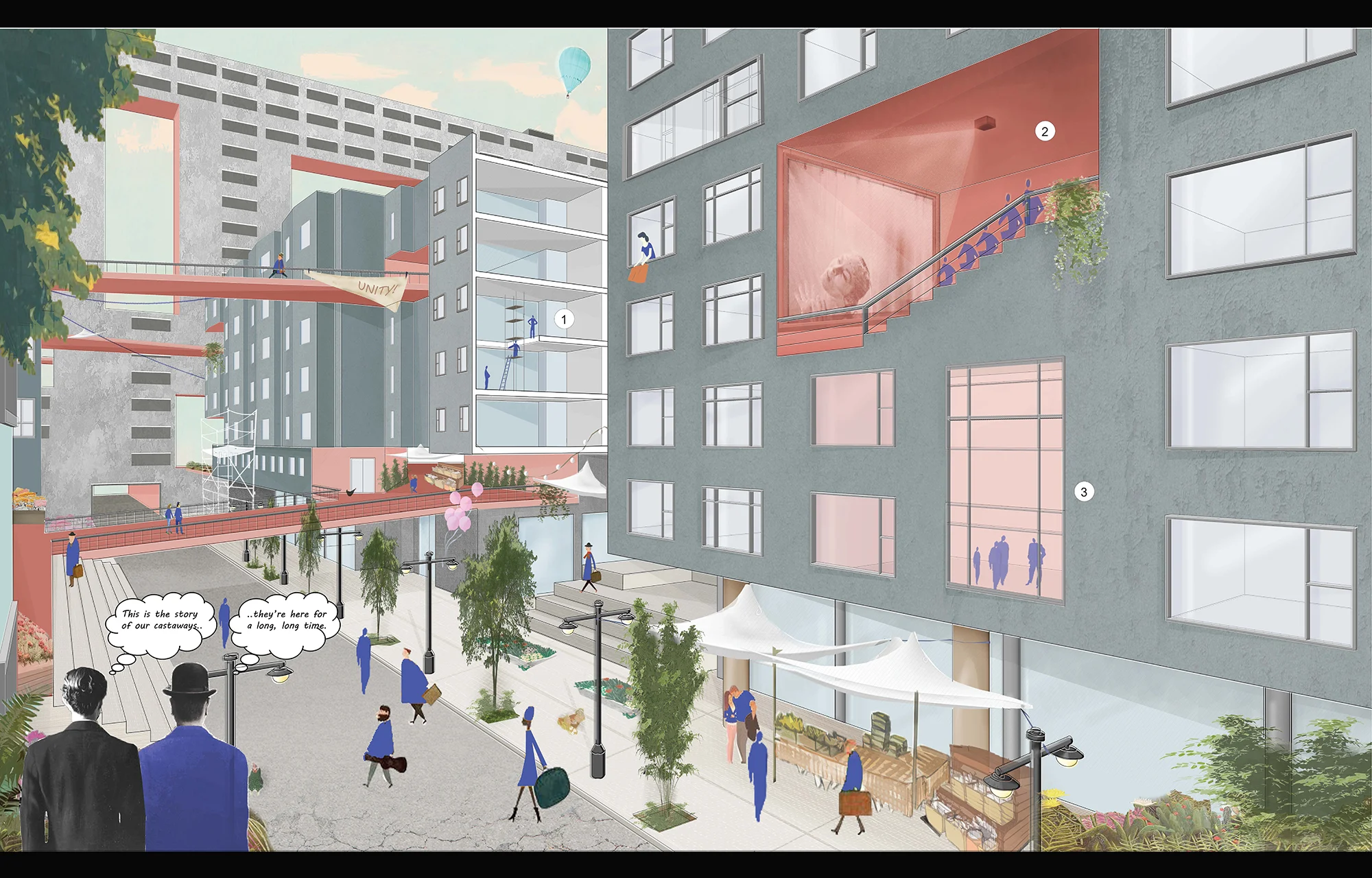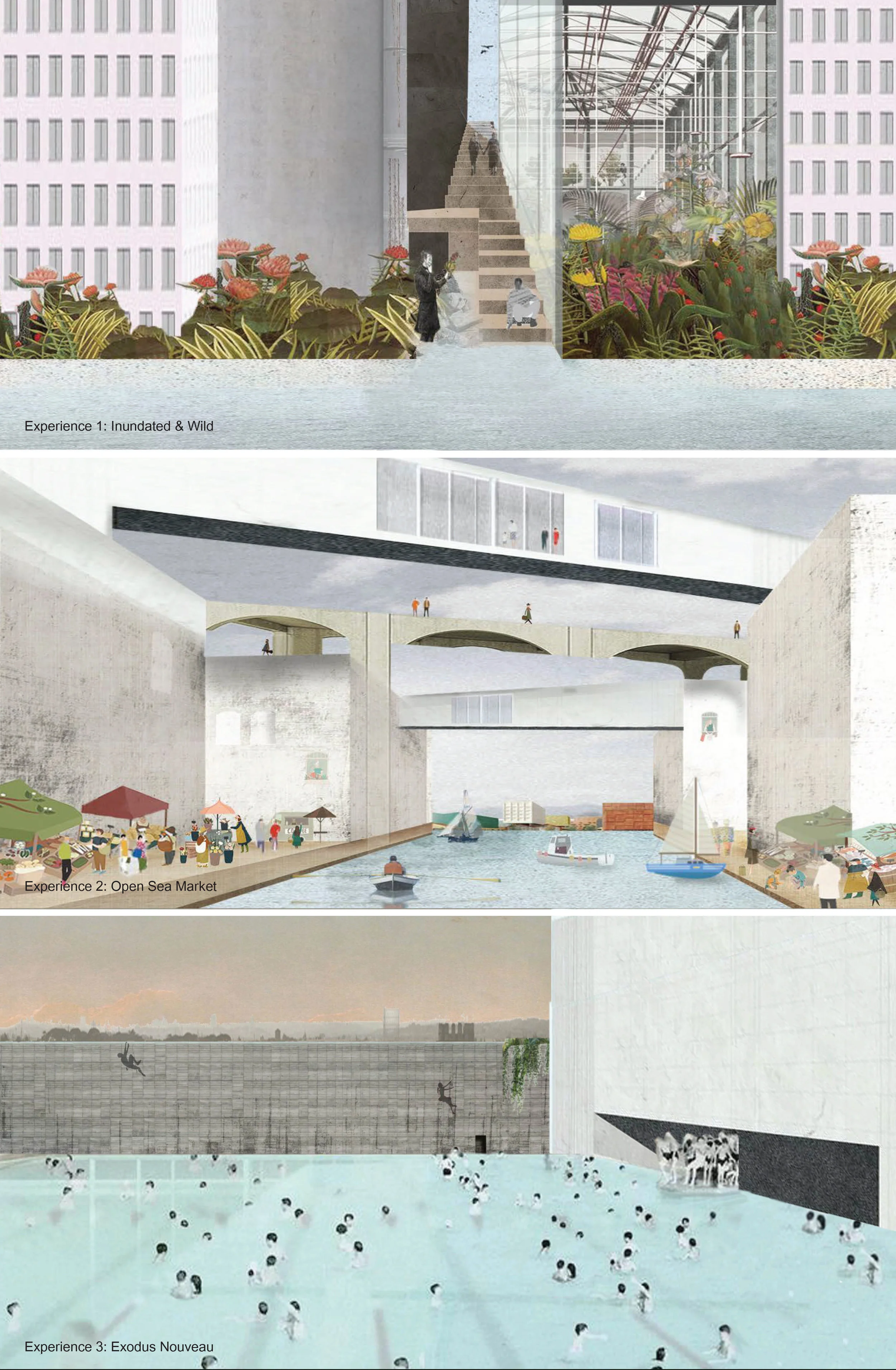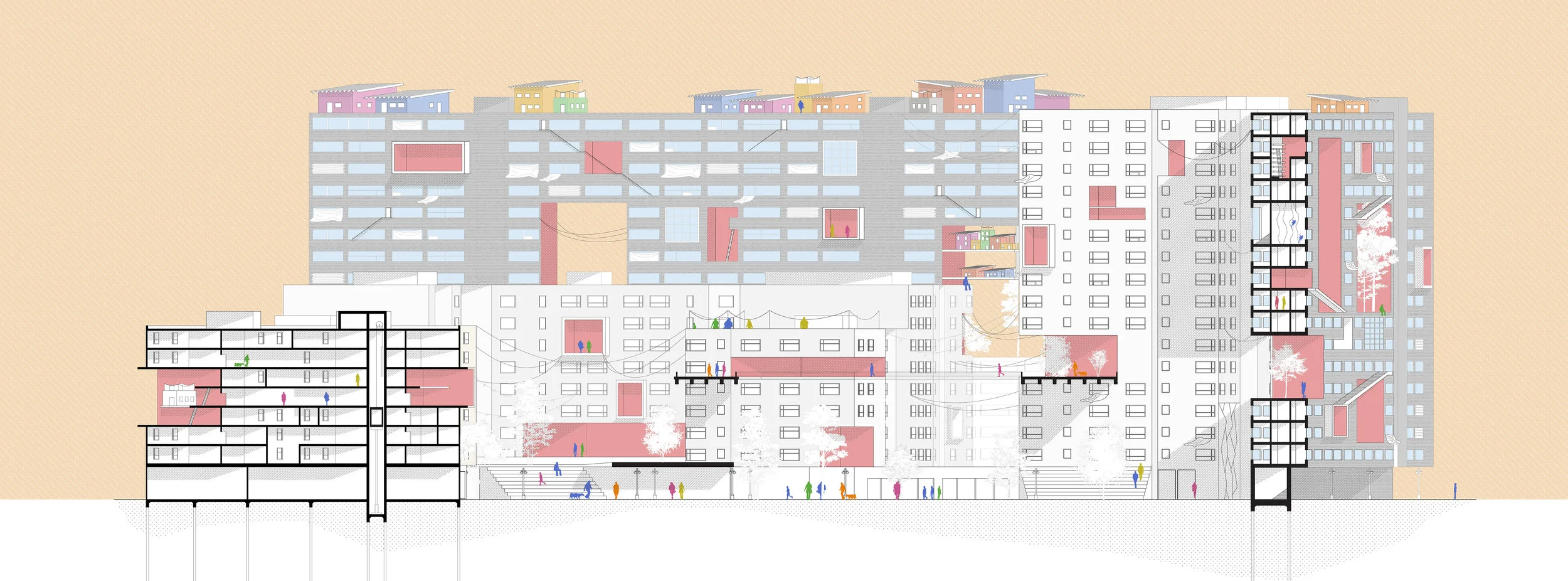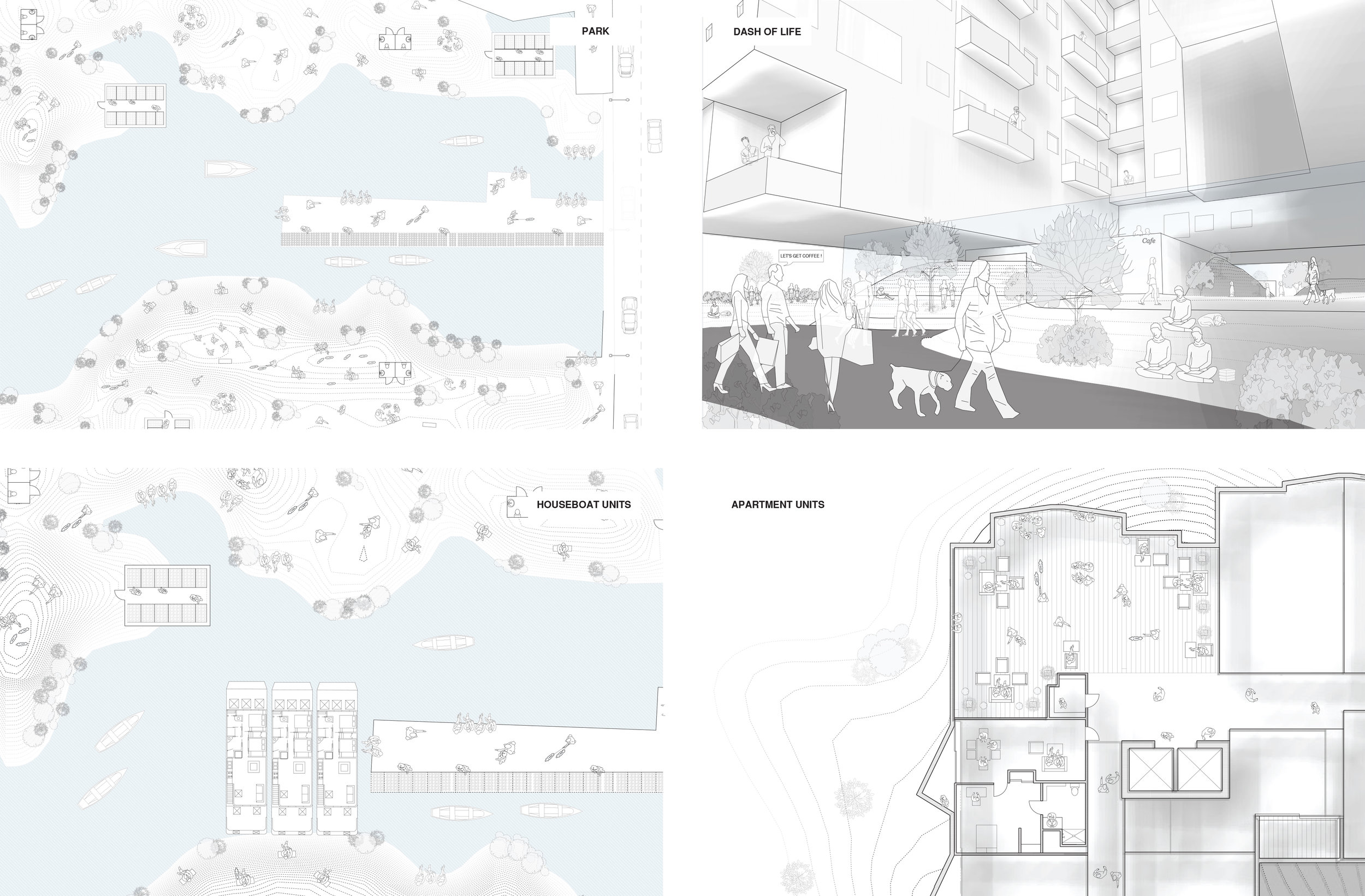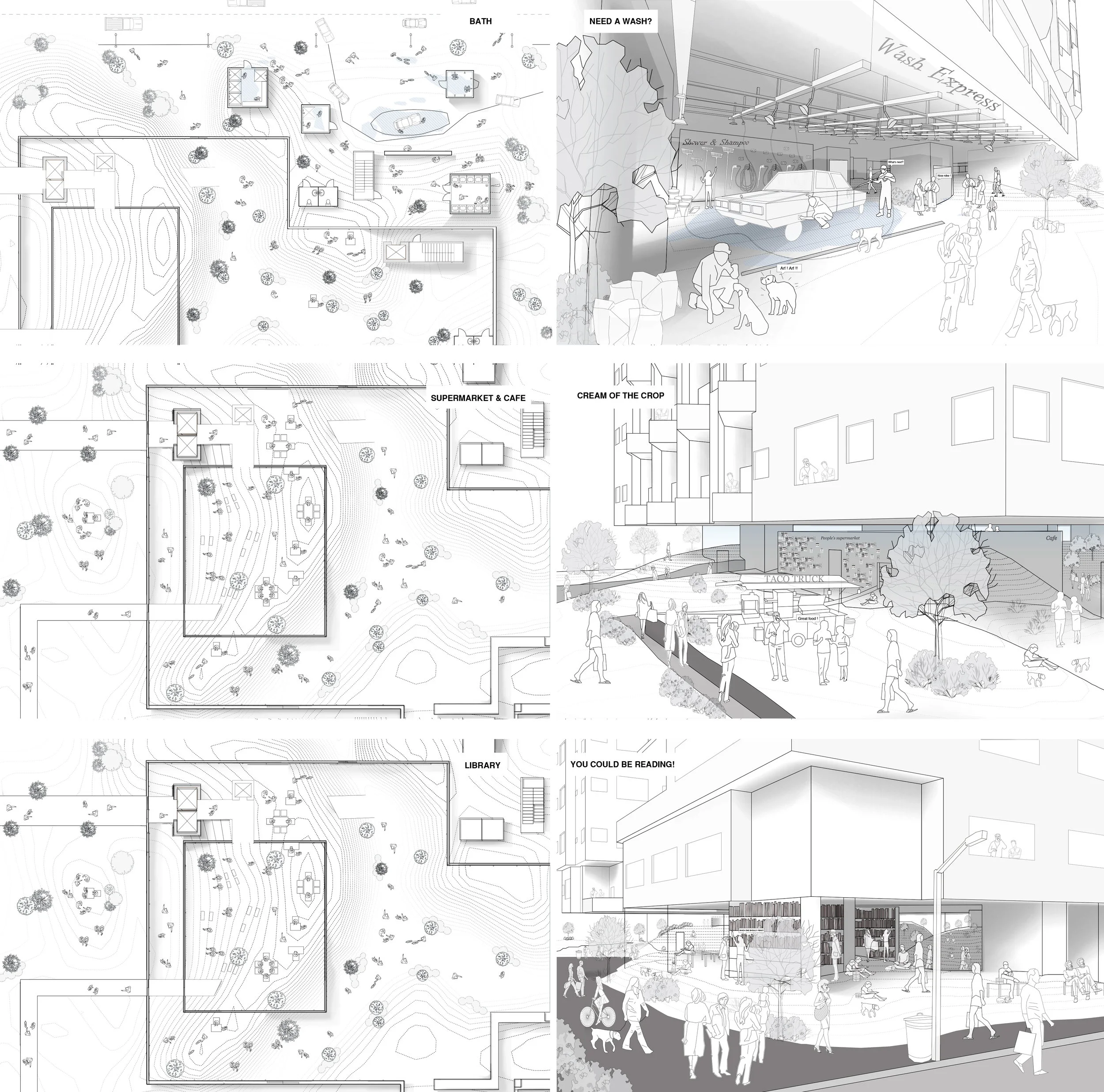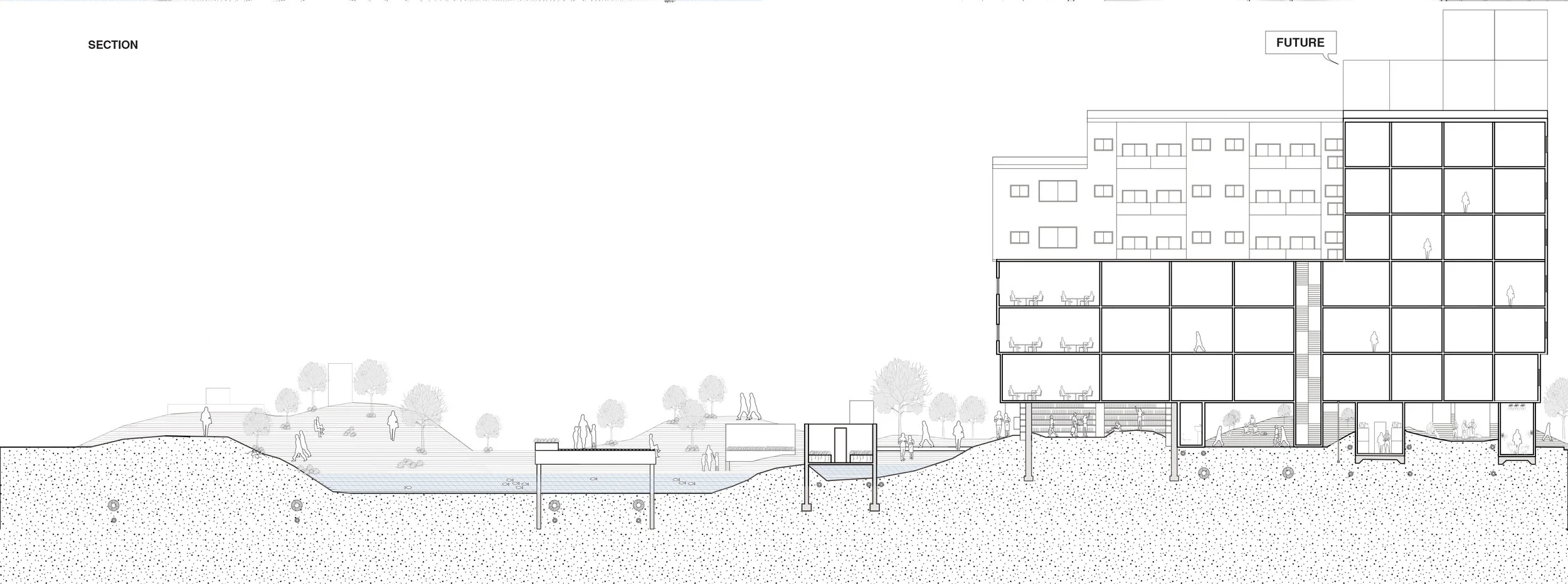“Exodus Nouveau” proposal for Mission Bay by Sarah Herlugson and Trenton Jewett.
win-win
Project: Win-Win
Class: Advanced Studio MAAD Urban Works, MArch and BArch, California College of the Arts, Architecture Division
Date: Fall 2016
Instructors: Janette Kim
The magnitude of climate change’s effects demands a scale of response beyond the reach of any single agency, company, or landowner. Who alone has the power to build flood barriers, maintain green infrastructure systems, or fund managed retreat? Any mitigation effort, no matter how large or small, effects new relationships among diverse publics. Each approach creates new pools of shared interest among stakeholders, defines zones of protection within neighborhoods, and determines who will (and will not) benefit. Such outcomes are especially charged in the San Francisco Bay Area, where social inequities are amplified full-force by gentrification pressures. The hazards of long term climate change are inextricable from risks to affordability and diversity today.
This design studio will examine the relationship between climate resilience and gentrification. How can designers integrate waterproofing measures into cities in a way that can ‘disrupt’ current displacement and gentrification trends?
Studio Summary. This studio will produce community decision-making tools, neighborhood master plans and building designs at the scale of a city block. We will work on a series of sites selected to exemplify significant ownership and gentrification trends in the Bay Area: the Produce District in the Jack London District, Mission Bay, Mountain View’s North Bayshore, and the Oakland Coliseum and Lions Creek Crossings. At a neighborhood scale, students will be asked to integrate sea level rise mitigation infrastructures into both existing and new construction, and double the existing square footage in a 3-5 block area. At the building scale, students will design for programs that respond to each site, such as housing, commercial offices, light industrial manufacturing, and markets.
Design Strategies. To do this, we will focus on two principle design strategies. First, we will adopt scenario planning methods to anticipate how climate-related effects, policy changes, community actions and market fluctuations might influence each other in the future. Students will make board games that play out a range of Win-Win, Win-Lose, and Lose-Lose scenarios. Second, we will experiment with strategies for designing urban waterproofing techniques (such as levees, wetlands, managed retreat, etc.) that can grow or change over time. Potential approaches include building retrofits, construction phasing, land banking, managed retreat, and subleasing. In this way, we will build on previously developed scenario planning techniques, and test the collective benefits of these designs.
Sites. Each group of students will work on one of the following sites, which exemplify common ownership and gentrification trends. (1) In the Produce District in the Jack London District, a patchwork of small business operators are a holdover from the neighborhood’s industrial days. (2) Mission Creek in Mission Bay demonstrates a different kind of market mechanism, as the high-end product of a Public-Private Partnership between government and a single, large developer. (3) Mountain View’s North Bayshore, home to Google, LinkedIn, Intuit and Microsoft, demonstrates the impact of corporate campuses on urban infrastructure, housing, and workforce economies. Finally, (4) San Leandro bay illustrates the confluence of the Lion’s Creek waterway, massive Oakland Coliseum and Warriors Arena facilities, and two public housing complexes--Lockwood Gardens, managed by the Oakland Housing Authority, and the Lions Creek Crossings, a Hope VI housing development.
At each site, we will study the ever-changing land use, economic drivers, and ecological demands of their waterfront conditions. We will pay especially close attention to the way climate change impacts relate to gentrification and real estate pressures.
Stop Calling Me Resilient was a Fall 2016 Advanced Studio taught by Assistant Professor Janette Kim, with MAAD, MArch and BArch students Abdullah Balkhyour, Sean Gentry, Pierce Gillespie, Jennifer Gonzales, Rachel (Quinn) Hammond, Sarah Herlugson, Manasi Kshirsagar, Yaxin Liu, Trenton Jewett, Shailee Shah, and Leon Trinh.





